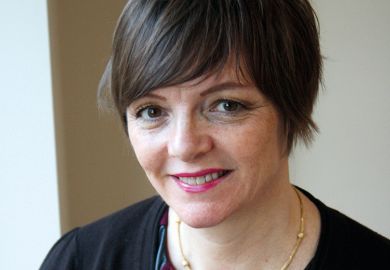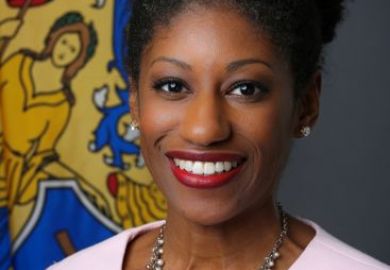Dominic Grieve is a former British politician and barrister. A leading opponent of Brexit, he served as the Conservative MP for Beaconsfield from 1997 to 2019 and was attorney general from 2010 to 2014. He was recently appointed visiting professor in law at Goldsmiths, University of London.
Where and when were you born?
Lambeth Hospital, London, on 24 May 1956.
How has this shaped who you are?
I live 400 yards from where my parents lived when I was born. I have lived in London all my life, apart from three years at university, went to school in the heart of Westminster, where I also worked as an MP and practised as a barrister from the Middle Temple, and have been active in politics in both Hammersmith and south Lambeth. So, this great city has been a key influence on me. I enjoy and have always been fascinated by London in all its diversity and cultural richness. I consider myself very privileged to be a resident. It seems to me, despite the inevitable challenges of city life, to be a very good place to live. While I have a French background through my mother (I am bilingual) and became familiar with Paris as a child visiting my grandmother and family friends, I prefer London.
You have worked in both politics and law. Do you have a preference?
My ambition was to become a politician and, on going into politics, I thought that law would only play a subsidiary role in my career, but that is not how it has turned out at all. I have been unable to escape being seen as a lawyer and I realise now that I am indeed a lawyer. The law has suffused my career and my outlook. But I have no regrets about going into politics. I have no preference between them. It has been a privilege to be able to combine them.
Have you had a eureka moment in your career?
Yes, when I had the Conservative whip withdrawn in September last year [for opposing Brexit], something I did not wish for or seek. A friend said to me, “So they have cast you out into darkness?” and I thought, “No, it is out into light.”
What are you most looking forward to about your role at Goldsmiths?
The opportunity for discussions with students and academic staff. As I know from giving talks and lectures, it’s the questions and the conversations afterwards that are the most important.
What do you hope to bring to the institution?
My experience of having to apply legal principles and sustain human rights on a daily basis, taking account of the needs of government decision-making in a political context. Academic study can suffer from being too detached from the realities of politics and government. Equally, far too much politics is practised without sufficient intellectual rigour. I hope I may contribute to bridging that gap. As Goldsmiths is developing a new academic programme in this area, there is great opportunity to help it be innovative.
What is the biggest misconception about your field of study?
That the rights created by human rights legislation are a moral absolute. The reality is, like all law, they are a scheme for the structure of civil society and the protection of individuals within it from coercion and oppression.
What kind of undergraduate were you?
Enthusiastic and disorganised; usually lurching from one essay crisis to another because of extracurricular distractions and lack of organisation. But I just about got it together in my last year when I worked in a more disciplined way. I enjoyed the friendships made; most of which have lasted the rest of my life.
If you were the universities minister for a day, what policy would you introduce?
I wonder what an impact assessment on a policy to give free university education to anyone over the age of 30 would reveal. Even those who have been to university tend to look back in their thirties and think that they would have got a lot more out of the experience had they known what they know now. Mature students need all the support they can get: they gain and give so much if the opportunity is there.
What are the best and worst things about your job?
As far as the job in politics was concerned, the worst aspect was the long hours away from family. The best aspect were those occasions when you could make a difference by improving government policy and action either as a minister or through the process of democratic politics and debate as an MP.
What would you like to be remembered for?
Helping to stop 90- and 42-day pre-charge detention; getting the original Hillsborough inquest verdicts quashed to allow the fresh inquiry to take place; and the attempt to get a second referendum on Brexit.
Who is someone you have always admired?
Charles de Gaulle. He was a difficult man with many faults. But his decision in 1940 to refuse to accept capitulation to the Nazis and his willingness to face exile and be branded a traitor for his actions ensured that, when France was liberated, it preserved its status as a major international power. Without him – with some help from Winston Churchill – this would not have happened.
What do you do for fun?
I walk up mountains, scuba dive, run, look at churches and collect rugs.
What one thing would improve your working week?
Being more competent at using my computer.
anna.mckie@timeshighereducation.com
Appointments
Michael Drake has been named the next president of the University of California system. Professor Drake, previously the president of Ohio State University, becomes the first black leader in the 150-year history of the 10-campus, $40 billion (£32 billion) system. Prior to joining Ohio State in 2014, Professor Drake’s entire academic career had been in the California system, including nine years as chancellor of the University of California, Irvine. John Pérez, chair of California’s Board of Regents, said that Professor Drake “personifies the qualities we looked for in selecting a new president: he is committed to seeing the whole student and to supporting all our students”.
Zeblon Vilakazi has been appointed the next vice-chancellor of the University of the Witwatersrand. Professor Vilakazi, currently deputy vice-chancellor for research and postgraduate studies at Wits, will take on the role in January and will succeed Adam Habib, who is joining SOAS University of London as director. A nuclear scientist, Professor Vilakazi has been credited with more than doubling Wits’ research output. “We are confident that Professor Vilakazi will ably lead Wits to its centenary in 2022 and beyond, steward a new vision for the academy, and reinvigorate the academic project in a higher education context that is rapidly changing,” said Isaac Shongwe, chair of Wits’ council.
Richard Trembath will be the next senior vice-president and provost (health) at King’s College London, succeeding Sir Robert Lechler in September. Professor Trembath is currently executive dean of the Faculty of Life Sciences and Medicine at King’s.
Mark Shrime is joining RCSI University of Medicine and Health Sciences as O’Brien chair of global surgery. He joins the Dublin institution from Harvard Medical School and the Massachusetts Eye and Ear Infirmary, where he was director of the Center for Global Surgery Evaluation.
Anna Strongman will be the first chief executive of Oxford University Development, the development partnership formed by Legal & General and the University of Oxford.
Register to continue
Why register?
- Registration is free and only takes a moment
- Once registered, you can read 3 articles a month
- Sign up for our newsletter
Subscribe
Or subscribe for unlimited access to:
- Unlimited access to news, views, insights & reviews
- Digital editions
- Digital access to THE’s university and college rankings analysis
Already registered or a current subscriber?








